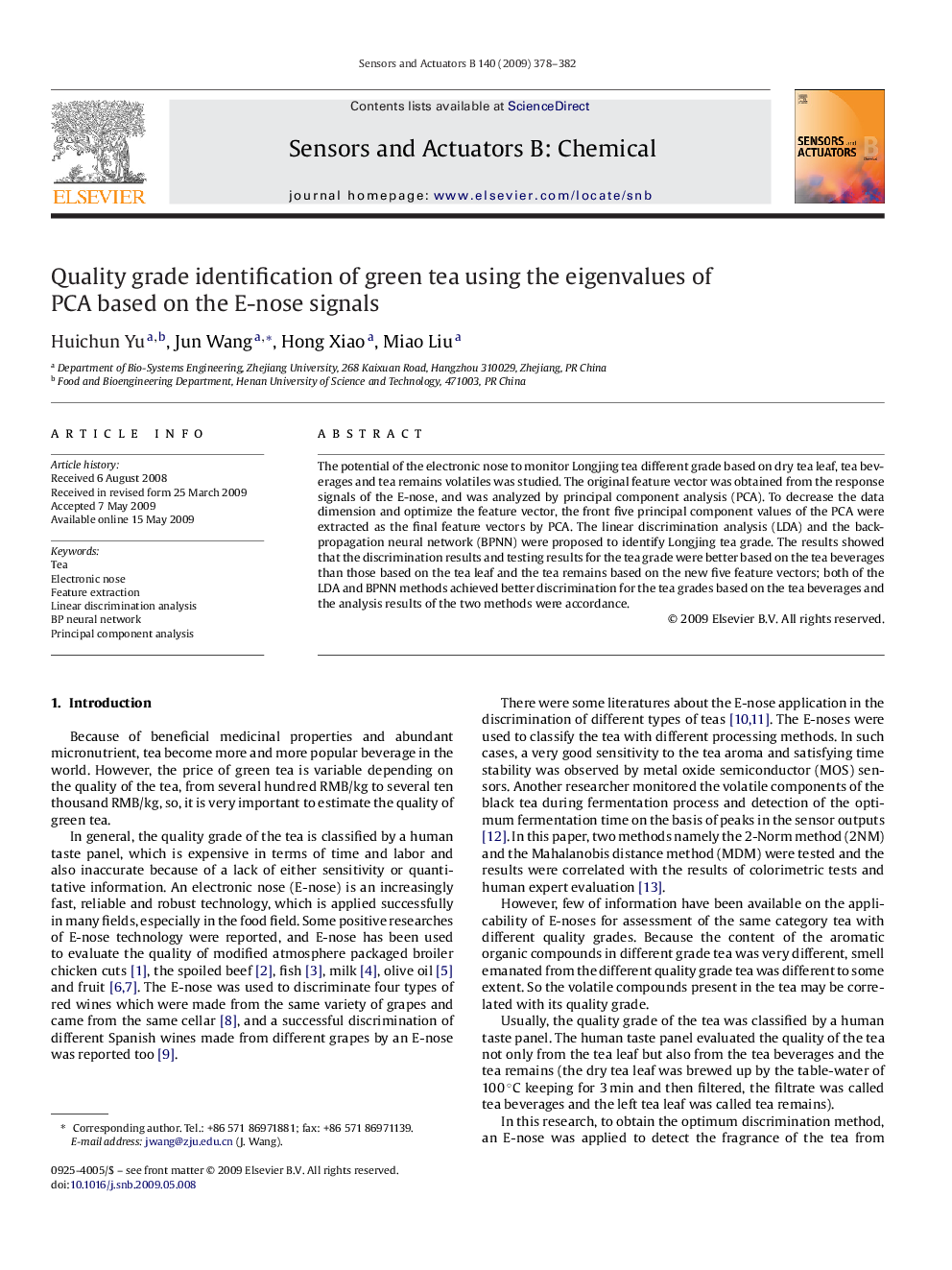| Article ID | Journal | Published Year | Pages | File Type |
|---|---|---|---|---|
| 746418 | Sensors and Actuators B: Chemical | 2009 | 5 Pages |
The potential of the electronic nose to monitor Longjing tea different grade based on dry tea leaf, tea beverages and tea remains volatiles was studied. The original feature vector was obtained from the response signals of the E-nose, and was analyzed by principal component analysis (PCA). To decrease the data dimension and optimize the feature vector, the front five principal component values of the PCA were extracted as the final feature vectors by PCA. The linear discrimination analysis (LDA) and the back-propagation neural network (BPNN) were proposed to identify Longjing tea grade. The results showed that the discrimination results and testing results for the tea grade were better based on the tea beverages than those based on the tea leaf and the tea remains based on the new five feature vectors; both of the LDA and BPNN methods achieved better discrimination for the tea grades based on the tea beverages and the analysis results of the two methods were accordance.
